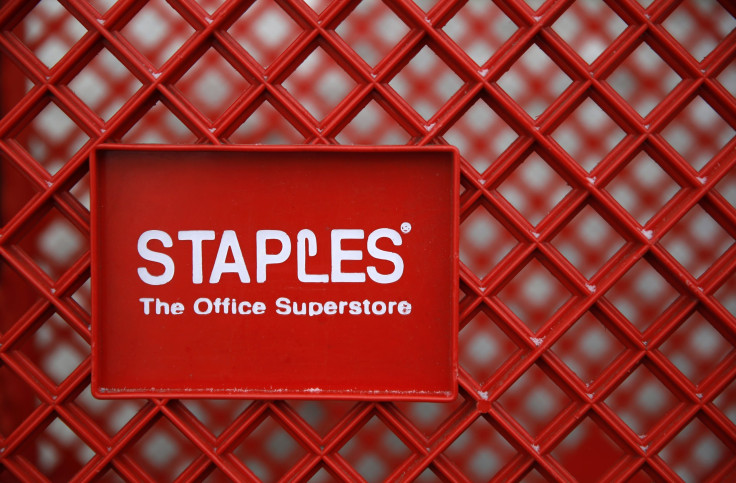Staples, Office Depot Merger Scuttled For A Second Tine Since 1997

Shares in country’s top office supply retailers plunged in after-hours trading Tuesday after a federal judge ended their second attempt to merge, siding with antitrust regulators that sued to block the move.
Staples Inc. stock fell more than 10 percent to $10.36 while shares in acquisition target Office Depot Inc. lost more than 26 percent to close at $6.09. Equity prices in both companies had gained significantly since the start of the year in anticipation of a $6.9 billion merger that would have rebranded Office Depot stores as Staples, turning it into a behemoth vendor of printers, paper, pens and ink cartridges.
In a three-page order, U.S. District Judge Emmet Sullivan in Washington, D.C., said the U.S. Federal Trade Commission provided a compelling argument against the merger plan.
“There is a reasonable probability that the proposed merger will substantially impair competition in the sale and distribution of consumable office supplies to large business-to-business customers,” the judge wrote.
The FTC had requested the judge weigh an injunction against the merger while it grappled with a challenge to the merger in its own administrative court.
“We are extremely disappointed that the FTC’s request for preliminary injunction was granted despite the fact that it failed to define the relevant market correctly, and fell woefully short of proving its case,” Ron Sargent, Staples’ chairman and CEO, said in a statement Tuesday evening.
The two companies’ defense lawyers challenged the FTC’s stance, arguing that Amazon.com’s year-old unit targeting business customers was making it increasingly difficult for the country’s top two brick-and-mortar to compete. By combining forces, they argued, Staples could become more efficient and offer lower prices against the online behemoth.
But the argument might have lost some weight because the companies had attempted to merge in 1997, years before Amazon.com Inc. rose to become a major online threat to traditional retail.
At the time, the arguments were markedly different, but led to the same results: a judge ruling in favor of the FTC before the FTC could rule on its own. At the time, there were many small office supply outlets, and Amazon.com was barely on the radar of booksellers who were just beginning heed the online threat. Also, the two companies had a third rival, OfficeMax, which Office Depot gobbled up in 2013 in an all-stock deal worth nearly $1.2 billion.
In 1997, the FTC took a stance that was novel at the time, called the unilateral effect. The FTC said that even if the major companies have plenty of competition from smaller rivals, merging them would lead to an overall increase in prices to consumers.
Today, the argument against the merger is much different. With virtually all small office supply retailers wiped out of the marketplace with the growth of e-commerce, the FTC is now arguing that Office Depot and Staples should remain rivals, facing off against each other as well as Amazon.com.
© Copyright IBTimes 2025. All rights reserved.






















